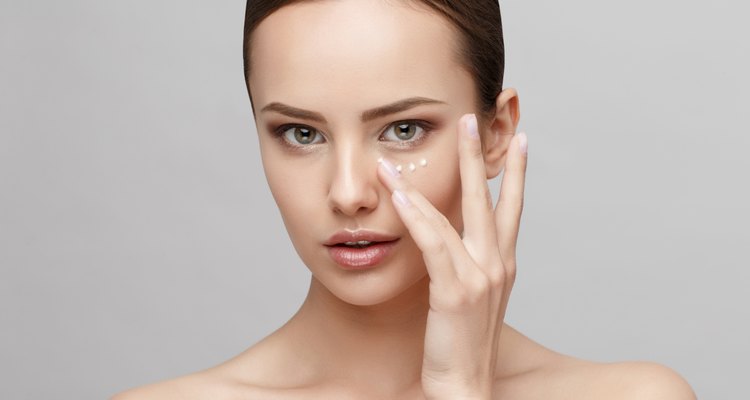
repinanatoly/iStock/Getty Images
Urban legend tells us that someone with dark circles under her eyes has been up late partying, studying or working. Dark circles are a sure sign of exhaustion and lack of sleep. The NetDoctor website, however, suggests that the most common cause of dark circles is too much pigment in the under eye area. The CNN Health website also debunks this myth by stating that there are many causes for dark circles under your eyes, but fatigue and high living aren't at the top of the list.
Dark Circle Woes
According to the Net Doctor website, there are several possible causes for dark circles under the eyes. Lifestyle is one factor; drinking alcohol, smoking and consuming caffeinated beverages can also contribute to dark circles. Other possible causes include sun exposure, thinness of skin tissue, diet, hyperpigmentation and genetics.
Skin Bleaching Treatments
Hydroquinone is a skin bleaching ingredient available in over-the-counter as well as prescription cosmetic products. In 1982, the Food and Drug Administration (FDA) recognized hydroquinone as being generally safe and effective. In 2006, the FDA recommended this recognition be withdrawn and more studies be done to test the safety of this ingredient. As of November 2010, studies are currently underway. In the meantime, the FDA leaves hydroquinone available as an over-the-counter product. Alternatives to hydroquinone include: retinoids, azelaic acid, kojic acid, licorice extract, ascorbic acid, and N-acetyl glucosamine, reports a 2007 "Dermatology and Therapy" study reported on PubMed.gov.
Pigment Problems
Dark circles and other dark spots on the face may be caused by excessive melanin production. Melanin is the dark pigment that gives skin its color. In areas where melanin becomes excessive, dark areas form on the skin. This is often a result of over-exposure to the sun. Hydroquinone prohibits enzyme action within the skin that causes excessive pigmentation to develop. This cosmetic ingredient may lessen the appearance of dark circles under the eyes.
Dark Circle Treatment Methods
Have your doctor check any dark spots on your skin to make sure they are not cancerous or pose any health risks. Wash the affected area before applying the hydroquinone cream and wash your hands after handling the cream. Use the hydroquinone product as directed on the package or by your doctor. When using hydroquinone, use sunscreen and avoid direct sun exposure.
Dos and Don'ts
Hydroquinone may cause allergic reactions in some users. If the area becomes red, itches or forms blisters, immediately discontinue using the product. Do not use products with benzoyl peroxide or hydrogen peroxide while you are using hydroquinone. This can cause dark staining on your skin. The Cleveland Clinic website states that hydroquinone is not suitable for those with darker skin. They recommend Kojic acid if you have darker skin.
Related Articles

The Difference Between Retin A & Renova
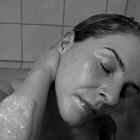
Uses for Selsun Blue
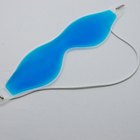
What Prescriptions Can Get Rid of Under ...

List of Retinoids

Kojic Acid for Dark Circles

How to Remove Dark Circles Under the ...
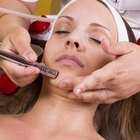
Fraxel Laser Treatment Dangers

Aloe Vera & Seborrheic Dermatitis

Dangers of Spray on Tan

Preparation H and Dark Circles Around ...
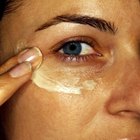
The Best Facial Moisturizers for People ...

Can Tri-Luma Be Used to Fade Acne Scars?

How to Get Rid of a Dark Line Above My ...

What Is Eucerin Cream?

Can Age Spots Be Reversed?

Definition of Skin Bleaching

Oil of Olay & Wrinkles
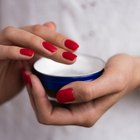
Possible Side Effects of Obagi

Side Effects of Cosmelan
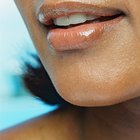
How to Cure Razor Burn on a Woman's ...
References
Writer Bio
Based in Austin, Texas, Jolie Johnson has been in the fitness industry for over 12 years and has been writing fitness-related articles since 2008 for various websites. She received her Bachelor of Arts in English and philosophy from the University of Illinois.
Photo Credits
repinanatoly/iStock/Getty Images